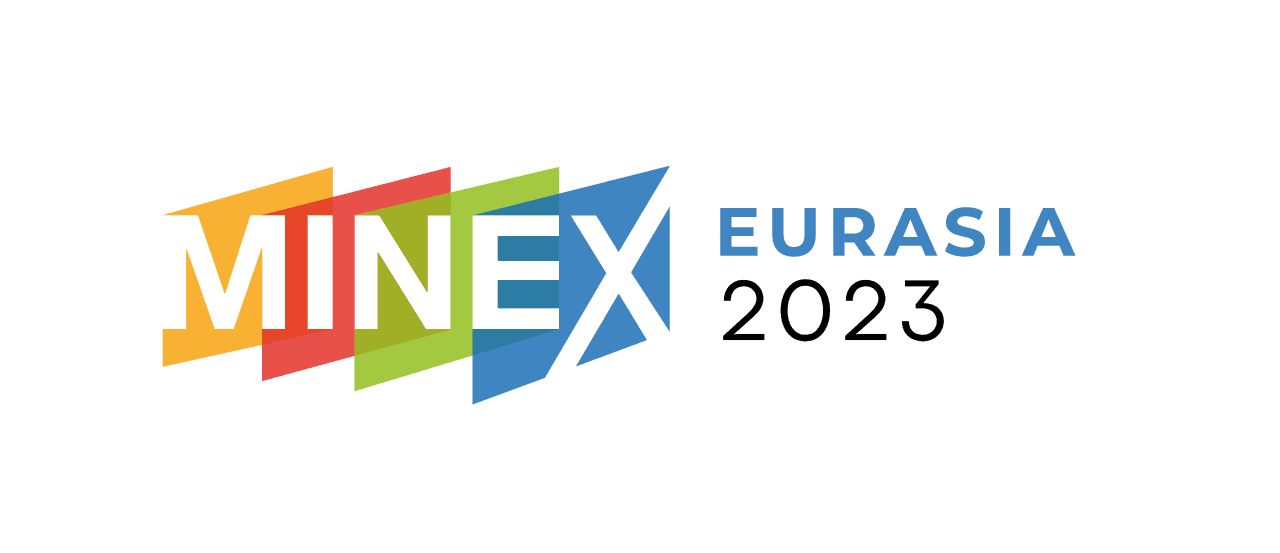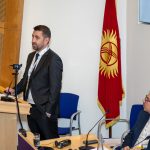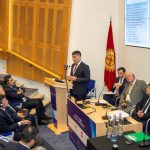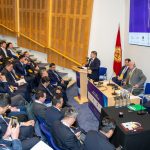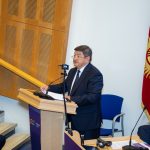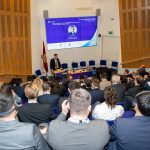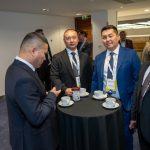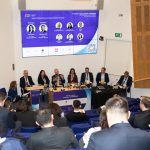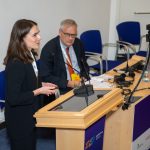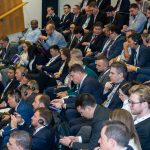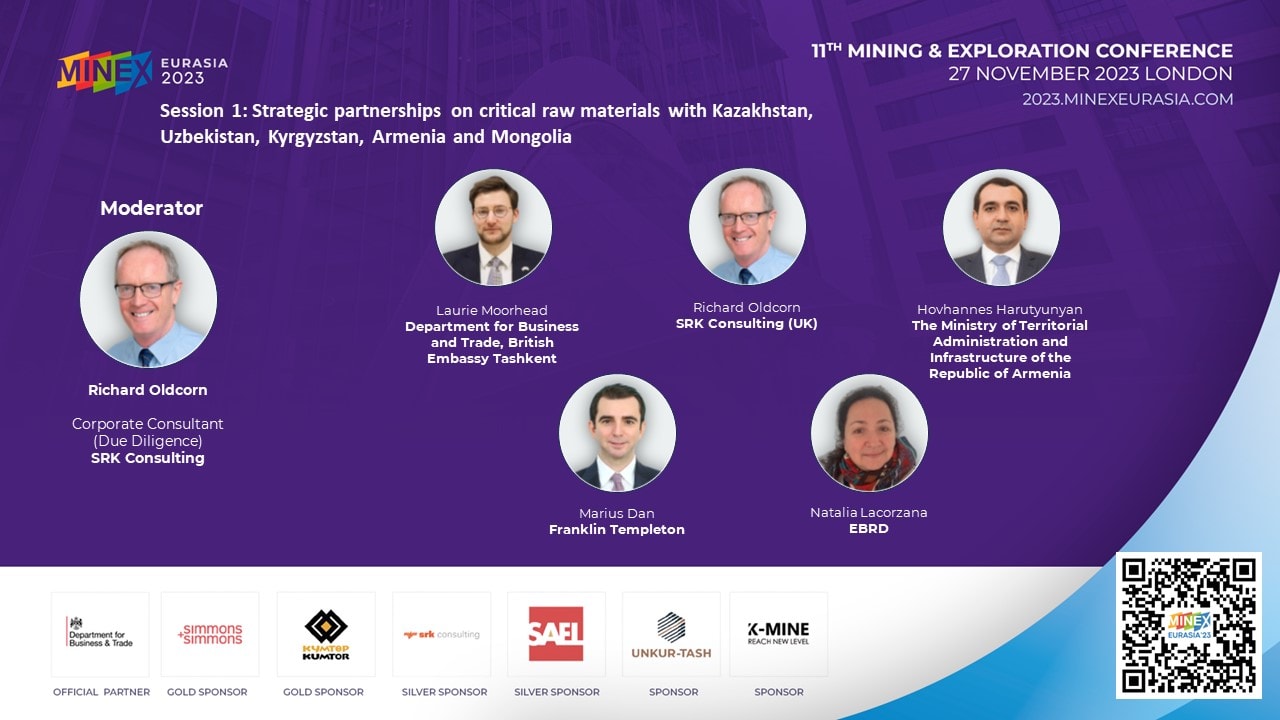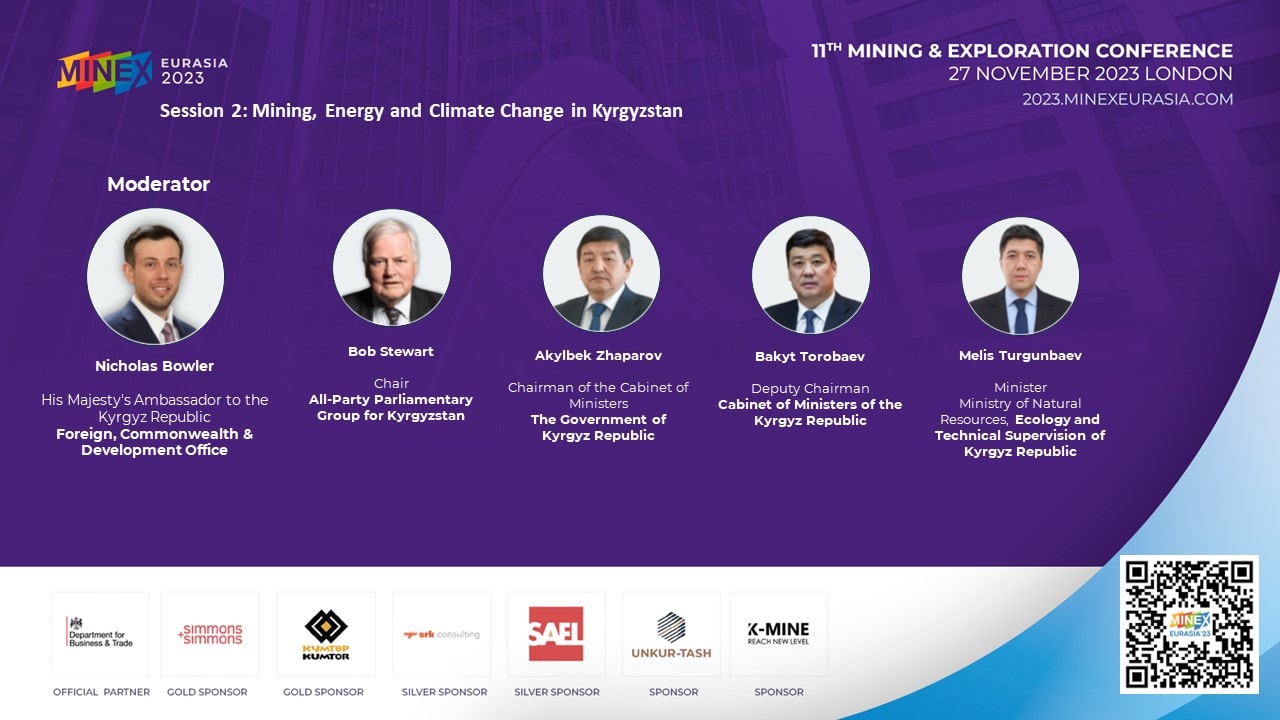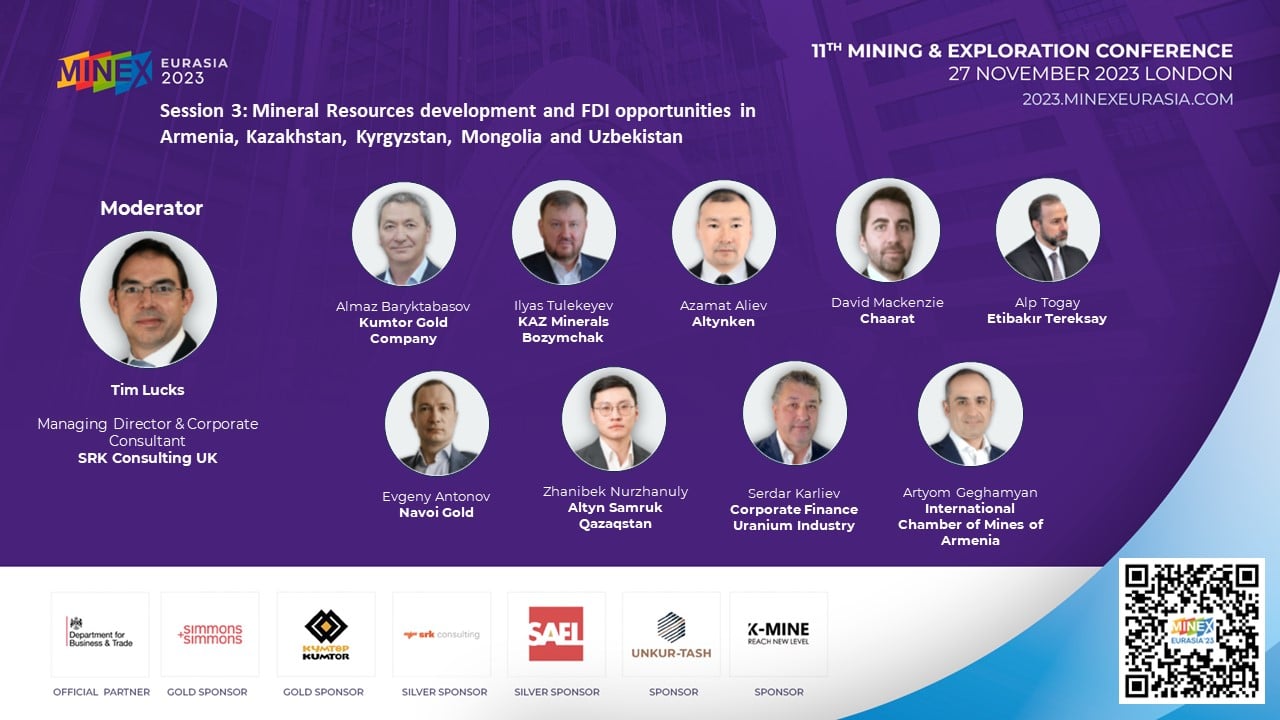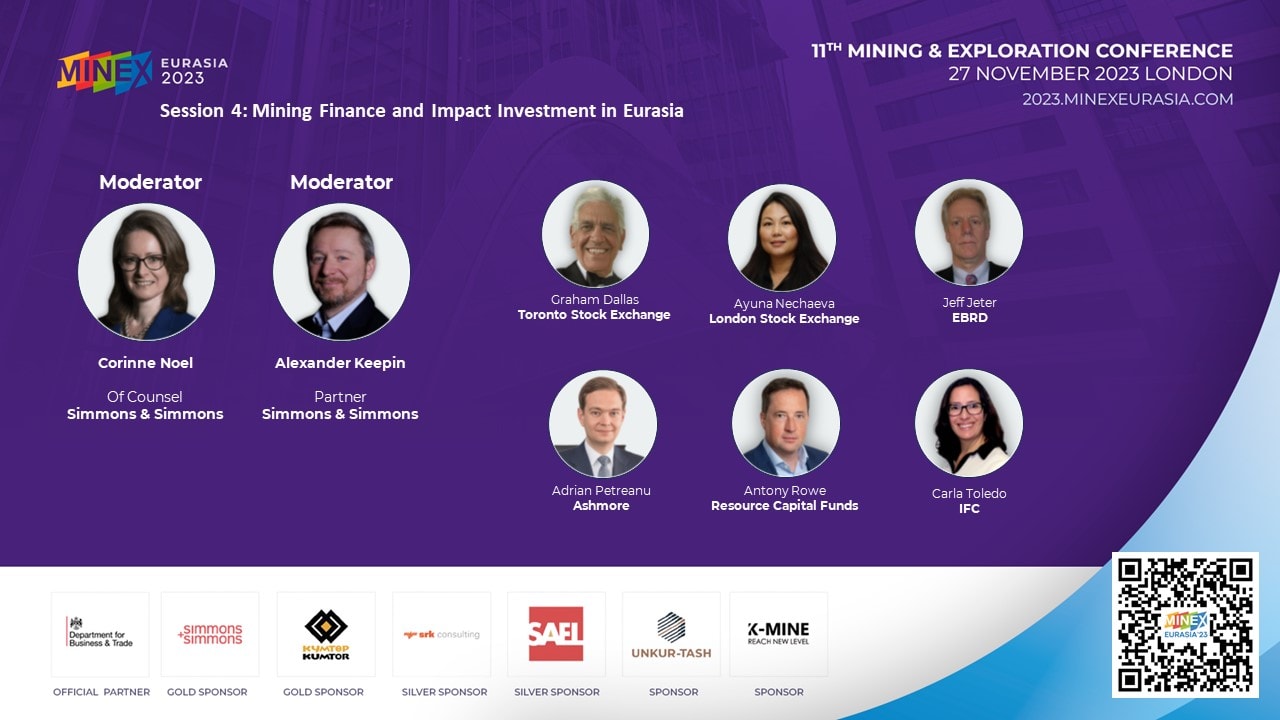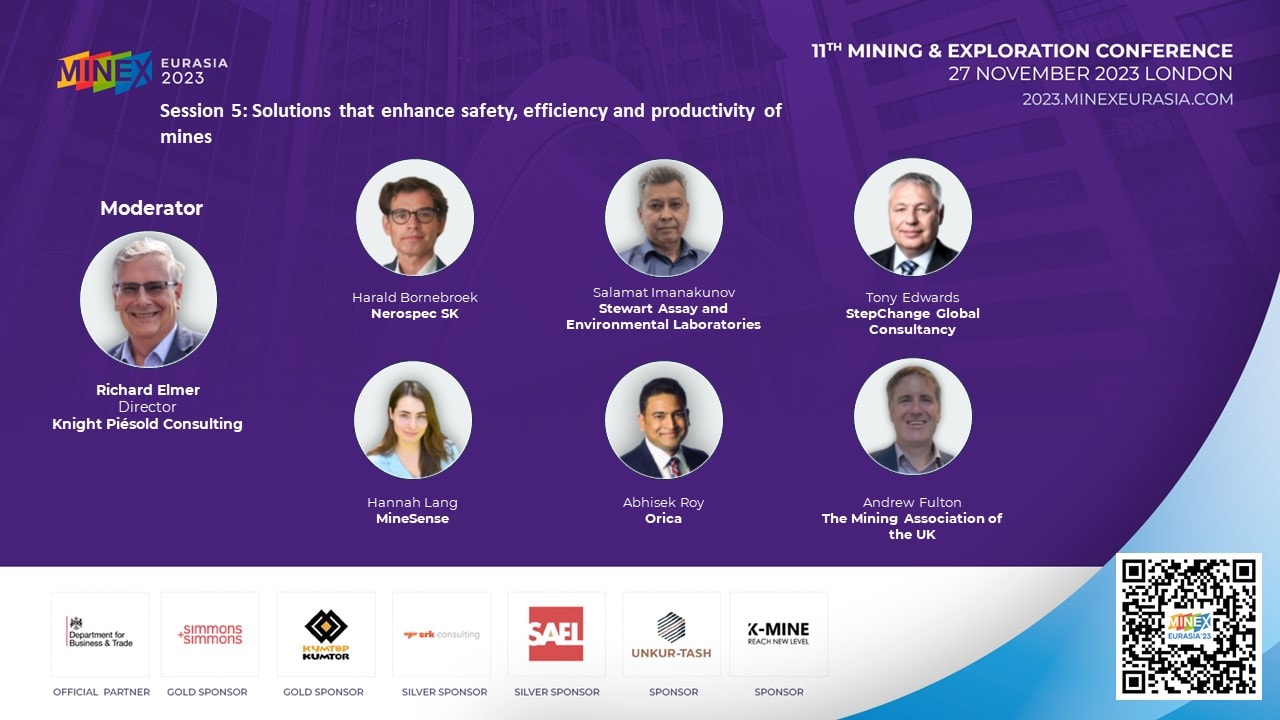Experts discussed the evolving role of Armenia, Kazakhstan, Kyrgyzstan, and Mongolia as trusted partners in the global supply chain for critical raw materials essential for climate change and green transition. The agenda includes discussions on regulatory changes, mining projects expansion, raising capital and finance, and industry best practices for environmental sustainability and economic growth.
The 11th MINEX Eurasia Conference
was held on 27 November 2023 in London under the general theme “Sustainable Mining in Armenia, Mongolia, Kazakhstan, Kyrgyzstan and Uzbekistan”.
MINEX Eurasia, established in 2012, stands as the UK’s premier conference dedicated to trade and investment in Mining & Metals in Central Asia, Caucasus, and Mongolia. The Conference gathered senior politicians, mining CEOs, executives of technology companies, investors, and international financiers from 20 countries from Europe, North America, and Middle East.
The conference was hosted by Simmons & Simmons and supported by Kumtor Gold Company, SRK Consulting, Stewart Assay and Environmental Laboratories, Unkur-Tash, K-Mine, and the Department for Business & Trade.
This year MINEX Eurasia Conference became the main business event for the first in 30-years high-level delegation from the Kyrgyz Republic to the United Kingdom. HE Akylbek Zhaparov, Prime Minister, and Head of the Presidential Administration of the Kyrgyz Republic presented a keynote address at the session dedicated to Mining, Renewable Energy and Climate Change management. Melis Turgunbaev, Minister of Natural Resources, Ecology, and Technical Supervision and senior officials and CEOs from both national and international companies provided an in-depth overview of the mining industry of Kyrgyz Republic. Other overseas mining delegations attended from Kazakhstan, Armenia, and Mongolia.
Participants
MINEX Eurasia 2023
Countries %
Seniority %
Industry sectors %
Executive summary of the conference sessions
Session 1: Strategic partnerships on critical raw materials with Kazakhstan, Uzbekistan, Kyrgyzstan, Armenia, and Mongolia
The opening session of MINEX Eurasia 2023 provided an overview of the burgeoning demand for minerals crucial for technologies like electric vehicles, wind turbines, and solar panels. Eurasia, encompassing Kazakhstan, Uzbekistan, Kyrgyzstan, Armenia, and Mongolia, is highlighted as a rich source of these minerals.
Laurie Moorhead, Director, Trade and Investment, British Embassy Tashkent discussed the UK’s interest in the region, highlighting the potential for British companies in mining, especially with the UK’s expertise in exploration techniques and green solutions. He noted the significant investments already made in the region, such as Rio Tinto’s development in Mongolia and Weir Minerals’ investment in Kazakhstan. Morehead emphasised the UK’s goal to maximize the critical mineral value chain and its strategy to collaborate with countries in Eurasia to achieve this.
Richard Oldcorn, Corporate Consultant (Due Diligence), SRK Consulting (UK) offered some Geological Perspectives of Strategic Partnerships on Critical Raw Materials in Central Asia. He also touched upon various national strategies and reforms to make their mining industries more attractive to foreign investment. For instance, Kazakhstan introduced a new mining code leading to a significant increase in the number of licenses acquired. Kyrgyzstan is developing a similar code to increase transparency and attractiveness for foreign investors. The UK has been actively signing memorandums of understanding with countries like Kazakhstan and Mongolia to facilitate technology transfer and collaboration in achieving Net Zero commitments by 2050.
The focus shifted to the criticality of certain minerals for the green energy transition, with a projected increase in the demand for battery minerals like lithium, graphite, cobalt, and nickel. The UK’s critical minerals strategy aims to address this demand by enhancing mining, refining, and recycling processes.
Hovhannes Harutyunyan, Deputy Minister of Territorial Administration, and Infrastructure of the Republic of Armenia presented on the future of mining in the Republic of Armenia. It details Armenia’s rich mineral resources, highlighting over 500 occurrences of various minerals, including critical ones like titanium, cadmium, and cobalt. The presentation emphasised Armenia’s commitment to transparent and responsible mining practices, evidenced by its participation in the Extractive Industries Transparency Initiative since 2017. Furthermore, it outlined Armenia’s strategy to develop the mining sector, approved in 2020, aiming to address existing challenges and align mining practices with international standards. This strategy is designed to stimulate new projects in both exploitation and exploration, including the study and exploration of critical minerals.
The discussion further focused into the EU’s critical raw materials act, aiming to diversify and secure supply chains for these vital minerals. The panel discussion with Marius Dan, Deputy CEO of Franklin Templeton, and Natalia Lacorzana, Head of Natural Resources at EBRD, focused on the potential and challenges in Eurasia’s mining sector, emphasizing sustainable and responsible mining practices. They discussed strategic partnerships and investment opportunities in countries like Kazakhstan, Uzbekistan, Kyrgyzstan, Armenia, and Mongolia, highlighting the region’s untapped mineral wealth. The panel underscored the importance of adhering to ESG standards and the role of technological and educational exchanges in advancing the mining sector. The discussion also touched on the challenges of foreign investment, emphasising the need for strong governance, transparency, and an inviting investment climate.
Session 2: Mining, Energy and Climate Change in Kyrgyzstan
The mining industry is a key driver of economic development in Kyrgyzstan, contributing significantly to the GDP and serving as one of the country’s largest taxpayers. The country is rich in various minerals including coal, gold, silver, and uranium.
The session at MINEX Eurasia 2023 highlighted the balance between economic development and environmental responsibility, emphasizing the Kyrgyz government’s efforts to maximize the benefits of mining while reducing its adverse impacts. Key topics included Kyrgyzstan’s political stability, rapid economic growth, and its role in the Eurasian economic landscape. The country’s strategic location at the heart of the Silk Road enhances its economic potential.
British Ambassador to Kyrgyzstan, Nick Bowler, and RHon Bob Stewart MP, Chair of the All-Party Parliamentary Group for Kyrgyzstan, emphasized the importance of UK-Kyrgyzstan cooperation in mining and the significant role the UK can play in aiding Kyrgyzstan’s mining sector.
In his speech at the MINEX Eurasia 2023 Conference, HE Akylbek Zhaparov, Chairman of the Cabinet of Ministers and the Head of the President Administration of Kyrgyz Republic, emphasised Kyrgyzstan’s commitment to mining development and environmental protection. He praised the country’s democratic progress, economic advancements, and improvements in public administration. He acknowledged Kyrgyzstan’s historical influences, including Russia, Turk nations, and China, and detailed the nation’s journey since independence, highlighting efforts in democracy, governance, and economic development. Zhaparov highlighted Kyrgyzstan’s significant natural resources, including extensive mineral reserves, and the substantial contribution of the mining industry to the GDP. He noted the liberal tax laws, stable political environment, and the government’s support for foreign investment in mining. Zhaparov mentioned new projects like the Kambar-Ata-1 hydroelectric plant and the China-Kyrgyzstan-Uzbekistan railway, reflecting economic growth and infrastructure development. He invited investors to Kyrgyzstan, ensuring favourable conditions and highlighting the nation’s potential in renewable energy and critical minerals necessary for the green economy.
In his presentation, Melis Turgunbaev, Minister of the Ministry of Natural Resources, Ecology and Technical Supervision of Kyrgyz Republic, highlighted Kyrgyzstan’s unique position in Central Asia and its significant potential in the economic sector, particularly mining. He emphasised the country’s political stability and rapid economic growth, noting a more than 60% increase since 2020 and a projected GDP growth rate of at least 4% for the current year. Turgunbaev detailed that 6% of Kyrgyzstan’s GDP comes from the mining industry, contributing 20% of its taxes. He mentioned that over 10 million tourists visited the country last year, a fivefold increase from the previous year.
Turgunbaev showcased Kyrgyzstan’s rich natural resources, including significant reserves of crude oil, coal, gold, silicon, and uranium, which are largely untapped. He pointed out that the country has the cheapest electricity in the region, using only 10% of its water resource capacity, leaving 90% to be developed. He highlighted Kyrgyzstan’s strategic partnerships and membership in international organizations, emphasizing its role in the Eurasian economic landscape.
The Minister underscored the importance of the mining industry as a key component of Kyrgyzstan’s economy, with major domestic and international companies operating in the sector. He mentioned the government’s efforts to introduce resource reporting in line with international standards and a new mining code to attract and protect investors. Turgunbaev concluded by inviting investors to Kyrgyzstan, highlighting the government’s commitment to facilitating investment and cooperation in the mining sector.
Session 3: Mineral Resources development and FDI opportunities in Kazakhstan, Uzbekistan, Mongolia, and Armenia
The 3rd Session of MINEX Eurasia 2023 moderated by Tim Lucks, Managing Director and Corporate Consultant of SRK (Consulting) UK provided a comprehensive overview of the latest developments and future in the mining industry across various regions, including Armenia, Kazakhstan, Kyrgyzstan, Mongolia, and Uzbekistan. Key highlights from the session include:
Almaz Baryktabasov, President, Kumtor Gold Company (Kyrgyzstan) detailed the history and current status of the Kumtor gold mine, emphasising its significant contribution to the Kyrgyz economy. Plans for expansion and technological advancements to improve operational efficiency and safety were discussed.
Ilyas Tulekeyev, General Director, KAZ Minerals Bozymchak (Kyrgyzstan) focused on the Bozymchak copper project, highlighting its role in revitalising the mining sector in Kyrgyzstan. The company’s achievements in creating a modern mining infrastructure and its positive impact on local communities were presented.
Azamat Aliev, Member of the Board, Altynken (Kyrgyzstan) spoke about their environmentally friendly, low-carbon joint mining venture, underscoring their commitment to safety, sustainability, and community development.
David Mackenzie, Chief Financial Officer, Chaarat (Kyrgyzstan) discussed their two gold projects detailing their progress, investment plans, and commitment to high international ESG standards.
Alp Togay, General Director, Etibakır Tereksay (Kyrgyzstan) highlighted investment in developing large-scale mining operations and commitment to safety and social engagement.
Evgeny Antonov, First Deputy General Director, Chief Transformation Officer, member of the Management Board, Navoi Gold (Uzbekistan) discussed transformation towards transparency and global market access, emphasising their low-cost production and significant resource base.
Zhanibek Nurzhanuly, Corporate Development Adviser, Altyn Samruk Qazaqstan (Kazakhstan) shared information on exploration work and plans for transitioning to operations and development, focusing on gold reserves and project readiness.
Serdar Karliev, Managing Director Corporate Finance, Uranium Industry (Mongolia) presented investments in uranium mining, discussing the potential and challenges in the uranium market and their commitment to developing their assets responsibly.
Artyom Geghamyan, Executive Chairman, International Chamber of Mines of Armenia talked about Armenia’s potential in the mining sector, government strategies, and the role of their organisation in promoting responsible mining practices in the country.
Each speaker provided insights into their respective company’s contributions to the mining sector, their focus on sustainable and responsible mining practices, and future for growth and development in their regions.
Session 4: Mining Finance and Impact Investment in Eurasia
The 4th session of MINEX Eurasia 2023 focused on the growing Western interest in Central Asia and Eurasia, particularly in countries like Kazakhstan, Uzbekistan, Kyrgyzstan, Armenia, and Mongolia. This interest is driven by the global demand for critical raw materials like uranium, manganese, chromium, lead, zinc, copper, and aluminium.
The session, moderated by Corinne Noel, Of Counsel, Simmons & Simmons and Alexander Keepin, Partner, Simmons & Simmons, explored the challenges and opportunities in financing mining and critical raw materials development in the region. Experts discussed the need for substantial investment and financing to upgrade or replace Soviet-era infrastructure to facilitate the export and transportation of these raw materials.
Key points from the session include:
- The challenge of funnelling cheap financing to stimulate the region’s economic growth, considering these countries are landlocked.
- The optimistic outlook for attracting diverse funding sources as Western engagement deepens.
- The role of the Toronto Stock Exchange (TSX) and London Stock Exchange (LSE) as principal exchanges for mining companies in Central Asia.
- The importance of environmental, social, and governance (ESG) considerations in mining investments, with emphasis on managing environmental risks and creating value for local communities.
- The role of international financial institutions like the European Bank for Reconstruction and Development (EBRD) and the International Finance Corporation (IFC) in supporting sustainable mining practices and addressing social and environmental issues.
- The session highlighted the evolving dynamics of mining finance, the critical role of stock exchanges, and the increasing emphasis on sustainable and socially responsible mining practices.
Key speakers included Graham Dallas, Head of Business Development EMEA, Toronto Stock Exchange and Ayuna Nechaeva, Head of Europe, Primary Markets, London Stock Exchange. They discussed the role of public markets in financing mining companies, emphasizing the importance of the Toronto and London stock exchanges in this sector. Graham Dallas highlighted Toronto as a major financing centre for mining, with a strong presence of mining companies listed on the Toronto Stock Exchange. Ayuna Nechaeva focused on the London Stock Exchange’s role in capital formation, data analytics, and risk management, noting the significance of the mining sector in the London market.
Panellists such as Jeff Jeter from the European Bank for Reconstruction and Development, Carla Toledo from the International Finance Corporation, Antony Rowe from Resource Capital Funds, and Adrian Petreanu from Ashmore, discussed various aspects of financing in mining. They covered topics like the importance of social and environmental considerations, the role of institutional investors, and the challenges of operating in emerging markets.
The discussion emphasized the need for sustainable and socially responsible mining practices, highlighting the importance of community involvement and environmental preservation. The panellists agreed on the necessity of high standards in disclosure and governance to attract international investors and ensure the long-term success of mining projects.
Session 5: Solutions that enhance safety, efficiency and productivity of mines
The 5th session of MINEX Eurasia 2023 moderated by Richard Elmer, Director, Knight Piésold Consulting focuses on innovative solutions and practices in the mining industry aimed at enhancing safety, efficiency, and productivity. The session featured speakers representing different companies and organisations, each discussing their respective fields of expertise and contributions to the mining sector.
Harald Bornebroek, Business Development Manager, Nerospec SK discussed the development of electronic components to improve mine safety and efficiency, emphasising machine-to-machine interaction safety. Nerospec SK specializes in manufacturing electrical components that enhance mine safety and are independent of any OEM supplier. They also developed a vehicle intervention controller and a data storage unit for monitoring mine performance.
Salamat Imanakunov, Laboratory Manager, Stewart Assay and Environmental Laboratories presented the capabilities of laboratory in Kyrgyzstan, focusing on sample preparation methods, fire assay for gold and platinum, multielement analysis, and environmental analysis. The laboratory is equipped with advanced equipment and follows an integrated lab system for process control.
Tony Edwards, CEO, StepChange Global Consultancy spoke about the application of integrated remote operation centres in mining, emphasising their role in digital transformation. He highlighted the importance of data utilisation and organisational change in maximising technology benefits. Edwards shared experiences from various projects with companies like BHP and Santos, discussing the benefits of co-locating controllers for different mining processes.
Hannah Lang, Team Lead, Digital Solutions, MineSense presented the technology for mine-to-mill optimisation using x-ray sensors installed on mining equipment. This technology helps to classify and reroute trucks in real-time, improving efficiency and reducing waste. MindSense’s system has been trialled globally, demonstrating significant benefits in copper concentrate grade and recovery.
Abhisek Roy, Head of Marketing – Europe, Middle East and Africa, Orica introduced explosives and technology solutions, highlighting global presence and focus on digitisation and automation in mining. He discussed various products and services like WebGen, the world’s first wireless initiating system for explosives, and their semi-automatic explosive charging equipment.
Andrew Fulton, President, The UK Mining Association presented a case study on how UK mining operators collaborate to address health, safety, and responsible mining. He outlined strategies for promoting mineral awareness, ensuring workforce competence, and adopting new technologies. The association focuses on major hazard management, emergency response, training, and technical networking.
